Breadcrumb
News archives
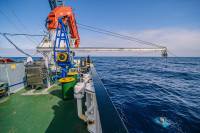
Scripps Researchers Address Ocean Paradox With 55 Gallons of Fluorescent Dye
Large-scale ocean circulation requires deep water to rise to the surface, but this upwelling had never been directly observed – until now

Artificial Climate Controls Might Become Ineffective – Because of Climate Change
Cloud brightening cooling strategy stops working in models when natural systems respond to relentless warming

Study Finds Nitrous Oxide Emissions Grew 40% over 40 Years, Accelerating Climate Change
Study Finds Nitrous Oxide Emissions Grew 40% over 40 Years, Accelerating Climate Change

Research Signals Milestone in Cutting Gases that Deplete Ozone Layer
Development also a step toward climate change mitigation
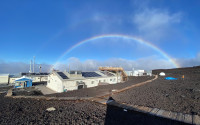
During Year of Extremes, Carbon Dioxide Levels Surge Faster than Ever
Two-year increase in Keeling Curve peak is largest on record
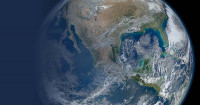
UC San Diego-Led Science Teams Selected as Finalists for NASA Science Missions to Understand Our Changing Climate
Each team will receive $5 million to conduct concept studies for new satellites
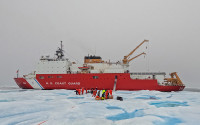

California Leads U.S. Emissions of Little-known Greenhouse Gas
State emits more than rest of country combined, new study finds

Global Warming Is Influencing Global Timekeeping
One consequence is giving society a few extra years to prepare for a potential Y2K-style glitch
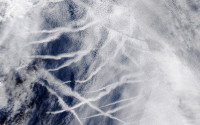
How To Determine if a Potential Geoengineering Strategy Could Work?
Scientists detail research needed to assess viability, risks of marine cloud brightening
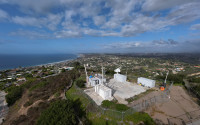
EPCAPE Observations at Scripps Pier, Mt. Soledad Wrap Up
Marine cloud-aerosol campaign now enters a phase of energetic data analysis
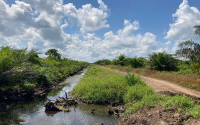
Canals Used to Drain Peatlands Are Underappreciated Hotspots for Carbon Emissions
The study found that one-third of the organic carbon leached from peatland soils into canal waters gets broken down and released into the atmosphere as carbon dioxide
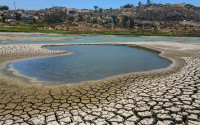
Study: Projected Changes in Extreme Precipitation Over Northern Mexico
Study finds that this understudied region may experience significant climate changes, impacting agriculture, the economy and infrastructure
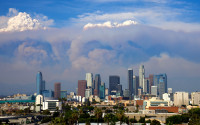
Extreme Heat, Wildfires Combine to Disproportionately Harm Less Affluent and Communities of Color
California ZIP code-scale survey exposes need for rethinking of public policy, say researchers
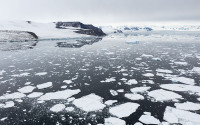
New Paper Pinpoints Key Role of NASA Satellites in Monitoring Earth's Vital Signs
All-woman team of researchers shows how 20 years of laser-based observations have improved our understanding of a changing planet
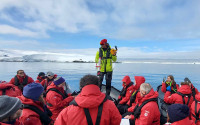
Scripps Scientists Journey to Antarctica to Study Key Climate Questions and More
Scripps Oceanography researchers are investigating Earth’s climate history, ice loss, phytoplankton, and marine food webs this field season
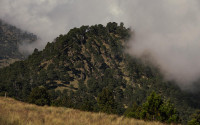
Ecosystem Benefits to Humanity Expected to Decline by Nine Percent by 2100
Nature’s Benefits to Decrease as Climate Change Shifts Ecosystems Across Borders
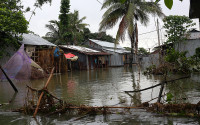
Three Decades of Data In Bangladesh Show Elevated Risk of Infant Mortality In Flood-Prone Areas
The findings reveal the long term public health burden of environmental hazards that are predicted to worsen under climate change

Scripps Oceanography Celebrates Seaweed Diversity in California
The Center for Marine Biodiversity and Conservation at Scripps hosts Seaweed Speakeasy as part of the 2023 California Seaweed Festival
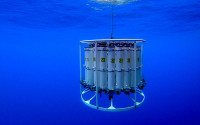
Scientists Publish 37-Year Record of Ocean Acidification off Southern California
The longest ocean time series of dissolved carbon dioxide in the Pacific — part of the “Keeling Curve of the ocean” — is revealed
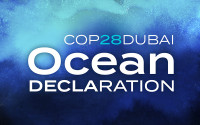
Ocean Pavilion Partners Unveil COP28 Dubai Ocean Declaration in Advance of UN Climate Conference
Declaration recognizes the critical role of the ocean in regulating climate change, calls for increased ocean observations

Atmospheric River Reconnaissance Flights Begin
On the heels of an exceptionally wet year, an expanded data collection program using Air Force and NOAA aircraft will begin flights over the Pacific from November through March

UC San Diego Delegation to Attend Annual UN Climate Conference in Dubai
Meet the students and faculty from Scripps Institution of Oceanography and School of Global Policy and Strategy who are headed to COP28
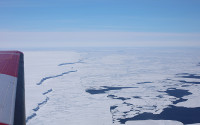
Meltwater Flowing Beneath Antarctic Glaciers May Be Accelerating Their Retreat
Simulations showed that this process accelerated sea-level rise by 15% by 2300, suggesting it should be factored into future projections
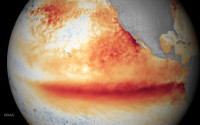
Pagination
Sign Up For
Explorations Now
explorations now is the free award-winning digital science magazine from Scripps Institution of Oceanography. Join subscribers from around the world and keep up on our cutting-edge research.